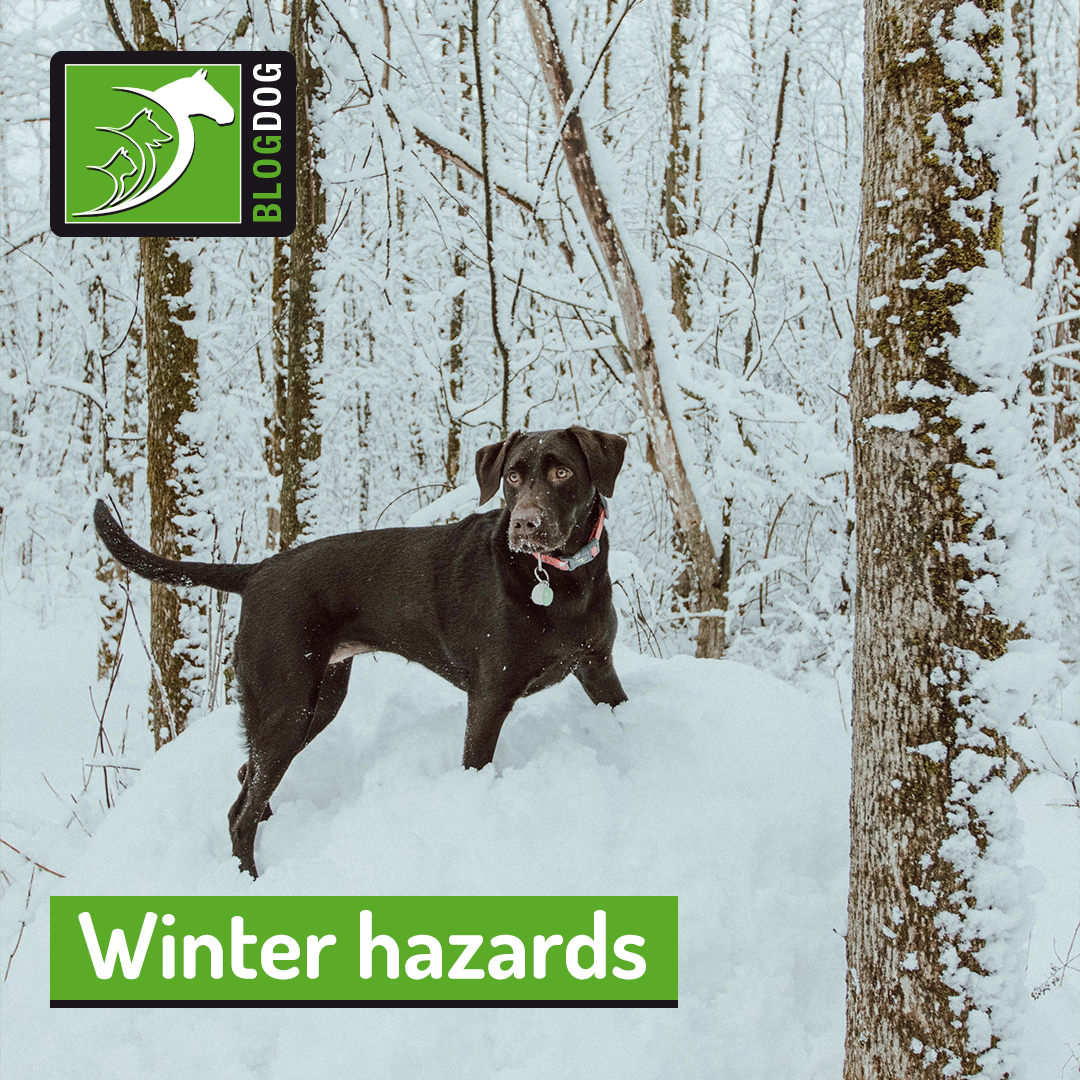
Winter hazards

Halloween and Bonfire night are behind us, and we are all looking forward to the jolliest season of the year. As November settles in, we'd like to take a little time to remind you of the most common winter hazards that you may face with your dog!
Dogs are especially vulnerable to toxic substances like antifreeze or chocolate, as their curiosity knows no bounds, and they have a tendency to get into trouble the second we turn our backs.
Check our list below for some of the most important things to keep in mind.
Dangerous foods
The time between Halloween and Christmas is filled with treats of all sorts, like chocolates, baked goods, sweets and fatty foods.
With family gatherings and preparations underway, it's easy to get distracted and leave delicious within reach of paws and mouths, so it's no surprise that a lot of accidental poisonings happen during this time of the year!
- Chocolate is highly poisonous, and even a relatively small amount can be harmful to your pet;
- Xylitol can be found in low-calorie foods or sweets like chewing gum, and it causes severe issues with blood sugar balance in dogs;
- Fatty foods like roast dinners might cause gastrointestinal problems if ingested in high enough quantities (for instance, if your dog steals the leftovers, which can be twice as dangerous if they have any bones!).
Keep a close eye on food sources and on your dogs to avoid a bothersome trip to the vet during dinner with your family and friends.
Antifreeze
Antifreeze (or de-icer) is a dangerous substance that is pretty much everywhere during the colder months. It contains ethylene glycol, a sweet compound that forms large crystals in the kidneys when ingested. This causes extensive kidney damage, which may be irreversible or even fatal if not treated in time.
As it's extensively used to prevent car fluids from freezing, many people will keep containers at home. We urge owners to keep de-icer containers safely away from pets as ethylene glycol is sweet-tasting, and dogs might seek it out.
If you spot any leaks in your vehicles, take care to clean any spills or remove access to the garage altogether until it can be fixed.
Frostbite
With the possibility of cold weather and snow, frostbite starts being a potential concern, especially for dogs that go outside a lot. Extremities like toes, ears and tail are the most sensitive body parts to freezing temperatures.
Making sure your pets have access to warm shelter at all times is vital to prevent injuries from frostbite. If you're planning on going on long walks in the snow or places with cold water, don't forget to put proper winter boots on your dog and to check regularly if he or she is doing okay.
If you think that your dog has ingested something they shouldn't or might have stayed out for too long in the cold, don't hesitate to contact your vets for advice.
Published: 22 Nov 2021
Read the previous article: Cold weather and pets - Keeping your furry friends comfortable

